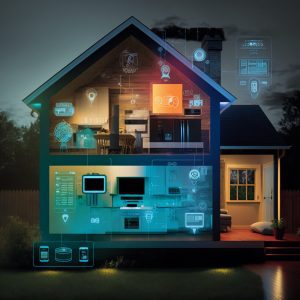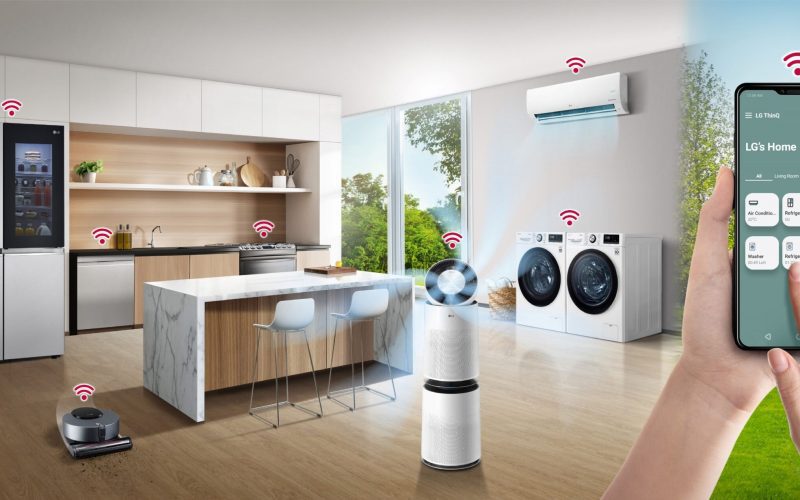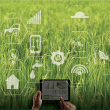The Evolution of Smart Home Devices in 2024
In 2024, the world of smart home technology has reached unprecedented heights. With advancements in artificial intelligence, energy management, and device interoperability, smart homes are now more intuitive, efficient, and user-friendly than ever before. This article delves into the evolution of smart home devices, highlighting their benefits, innovations, and impact on daily life, supported by real-world examples and case studies.
Enhanced Energy Management Systems
One of the most significant advancements in 2024 is the development of energy management systems tailored for smart homes. Companies like Homey have introduced innovative solutions to monitor and optimize energy consumption, ensuring that households become more energy-efficient and cost-effective.
Benefits:
- Cost Savings: By tracking real-time energy usage, homeowners can reduce electricity bills significantly.
- Sustainability: Efficient energy management contributes to a reduced carbon footprint.
- Convenience: Automated systems handle energy adjustments, eliminating manual interventions.
Example:
Homey’s energy management tab and the Homey Energy Dongle have set a new standard. These tools allow users to monitor energy usage across all devices and even automate energy consumption based on dynamic pricing models. For instance, a case study involving a suburban family revealed a 20% reduction in their monthly electricity bill after integrating these tools.
Interoperability: The Matter Standard

The adoption of the Matter standard has revolutionized device interoperability in smart homes. By providing a unified protocol, Matter ensures seamless communication between devices from different manufacturers.
Benefits:
- Ease of Integration: Users can add devices to their ecosystem without compatibility concerns.
- Improved Security: Matter’s local operation minimizes vulnerabilities associated with cloud reliance.
- User Experience: Simplifies the process of managing multiple devices.
Example:
Imagine a homeowner using Apple Home to control a Google Nest thermostat and an Amazon Alexa-enabled light system. With Matter, these devices interact effortlessly, creating a cohesive smart home environment.
Case Study:
A tech-savvy professional in New York revamped her smart home with Matter-compatible devices. She reported a 50% reduction in setup time and a far more intuitive experience managing her devices, enhancing her daily routine.
Artificial Intelligence in Smart Homes
Artificial intelligence (AI) has become the cornerstone of modern smart home devices. From AI-powered robots to intuitive kitchen appliances, AI adds a layer of intelligence that elevates convenience and efficiency.
Benefits:
- Personalized Experiences: Devices adapt to individual preferences and routines.
- Enhanced Functionality: AI enables predictive behavior and proactive problem-solving.
- Time-Saving: Automates tasks, freeing up time for users.
Examples:
- LG’s Smart Robot: A multifunctional robot that assists with chores, security, and even companionship.
- Samsung’s AI Ovens: These ovens can suggest recipes, adjust cooking times, and notify users when food is ready.
Case Study:
A family in Los Angeles integrated LG’s smart robot into their home. The robot’s ability to monitor security, remind them of appointments, and assist with cleaning significantly improved their quality of life, reducing stress and workload.
Energy Optimization with Smart Home Devices

Dynamic energy optimization is another key trend in 2024. Smart home devices can now adjust their operations based on real-time energy pricing, ensuring maximum efficiency.
Benefits:
- Cost Efficiency: Saves money by operating during off-peak hours.
- Sustainability: Reduces unnecessary energy consumption.
- Convenience: Automated adjustments eliminate the need for user input.
Example:
Smart thermostats like the Nest Learning Thermostat analyze energy usage patterns and adjust heating or cooling to optimize energy consumption. Coupled with solar panels, these systems can further enhance sustainability.
Security Enhancements in Smart Homes
With the rise of smart homes comes the need for robust security solutions. AI-driven security systems have transformed home safety, offering advanced features like facial recognition and predictive threat analysis.
Benefits:
- Enhanced Safety: Provides real-time alerts and 24/7 monitoring.
- Peace of Mind: Ensures families feel secure, even when away from home.
- User-Friendly Interfaces: Simplifies the process of managing home security.
Example:
Apple’s anticipated AI-driven security cameras are expected to redefine home security. These cameras can distinguish between family members, pets, and potential intruders, reducing false alarms.
Case Study:
A homeowner in Chicago equipped their property with AI-enabled cameras and sensors. Within weeks, the system detected an attempted break-in and alerted local authorities, preventing a potential burglary.
Upcoming Trends and Products
The future of smart homes is brimming with potential. Tech giants like Apple are preparing to launch innovative products that promise to reshape the smart home landscape.
Anticipated Products:
- Apple’s Wall-Mounted Hub Screen: Expected in 2025, this device will centralize smart home control.
- Apple-Branded Home Security Cameras: Slated for 2026, these devices will leverage AI for enhanced functionality.
Benefits:
- Centralized Control: Simplifies managing multiple devices.
- Advanced Features: AI integration ensures smarter, more responsive devices.
Smart Kitchen Technology
The kitchen has become a focal point for smart home innovation. AI-powered appliances streamline meal preparation, making cooking more enjoyable and efficient.
Benefits:
- Time-Saving: Automates tedious tasks like preheating and recipe adjustments.
- Improved Cooking: Ensures consistent results with minimal effort.
- Personalization: Adapts to dietary preferences and habits.
Example:
Samsung’s AI ovens provide step-by-step cooking guidance and suggest recipes based on available ingredients, transforming cooking into a hassle-free experience.
Consumer Benefits from Technological Advances

The evolution of smart home technology directly benefits consumers by improving their quality of life.
Key Advantages:
- Cost Efficiency: Reduced energy bills and optimized device usage.
- Convenience: Automation simplifies daily tasks.
- Enhanced Lifestyle: Personalized experiences and improved comfort.
Case Study:
A retired couple in Texas installed a comprehensive smart home system. Automated lighting, temperature control, and AI-driven assistants significantly improved their day-to-day comfort, allowing them to focus on hobbies and relaxation.
Future Prospects of the Smart Home Industry

The smart home industry is poised for continued growth, with AI and sustainability at the forefront of future innovations.
Predictions:
- Increased adoption of smart devices in mainstream households.
- Greater focus on eco-friendly technologies.
- Enhanced AI capabilities for even more personalized experiences.
Benefits:
- Widespread Accessibility: Lower costs make smart homes accessible to more people.
- Sustainability: Advances in energy management contribute to global environmental goals.
- Continuous Innovation: Keeps pushing the boundaries of what’s possible.
Conclusion
The evolution of smart home devices in 2024 highlights a blend of technological innovation, sustainability, and user-centric design. From AI-powered assistants to energy-efficient systems, these advancements promise to redefine modern living. As we look ahead, the future of smart homes holds the potential to create environments that are not only intelligent but also deeply attuned to our needs, ensuring a better quality of life for everyone.












